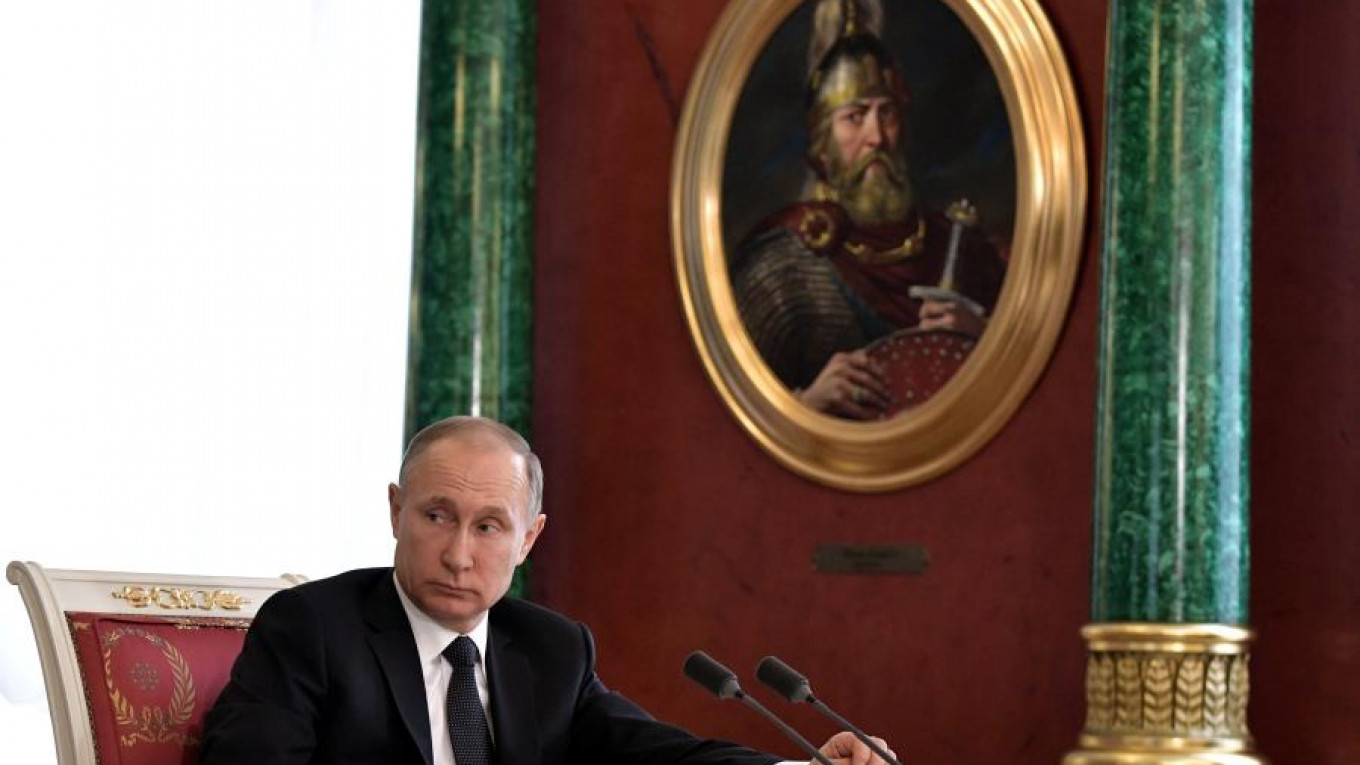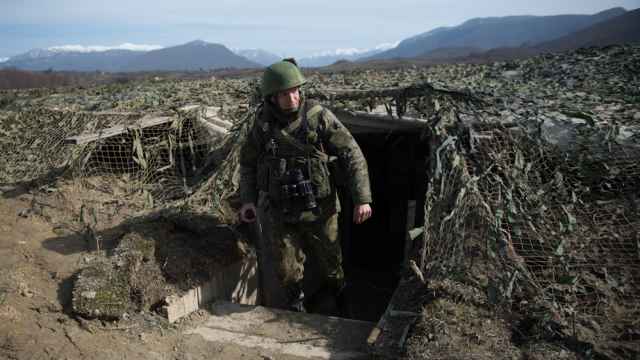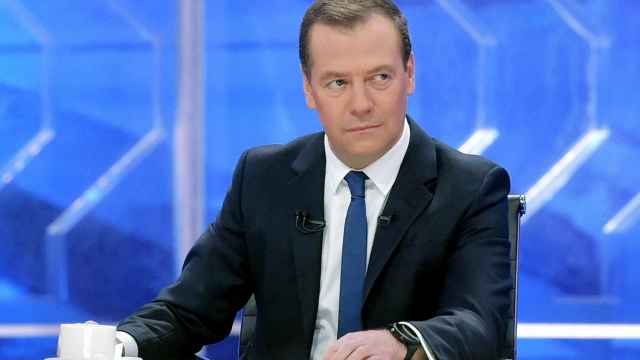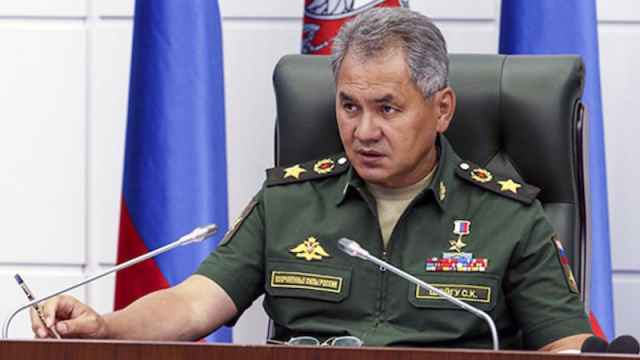In recent weeks, senior U.S. military officials have accused the Russian government of providing support to the Taliban, the militant group still waging a bloody insurgency against the government in Afghanistan.
My initial response was to be skeptical of these claims. First, because no one seems to be offering any concrete proof. Second, considering the fact that Russia’s Central Asian allies see the Taliban — and allies the Islamic Movement of Uzbekistan — as a major threat. And, third, because two years ago I heard similar claims made against the United States. Then, I rejected the claims as obvious nonsense; a mix of paranoia and Russian propaganda.
But today, perhaps, I should not be so dismissive. While Russian officials won’t confirm arm supplies to the Taliban, they are nevertheless quite open about their willingness to cooperate with the group.
Two factors are in play here. First, Russia is genuinely spooked by the Islamic State, which has established a presence in Afghanistan. Unlike the Taliban, which never had ambitions beyond Afghanistan and Pakistan, the Islamic State actively recruits in post-Soviet countries and is willing to strike within Russia itself.
Second, Moscow has long lost faith in the ability of Washington and its allies to either finish off the Taliban as a fighting force or to leave behind a stable government in Kabul.
Back in 2010, Boris Gromov, the general who oversaw the withdrawal of Soviet troops from Afghanistan, and Dmitry Rogozin, Russia’s ambassador to NATO, published an editorial in the New York Times, saying that a premature NATO pullout “would give a tremendous boost to Islamic militants, destabilize the Central Asian republics and set off flows of refugees, including many thousands to Europe and Russia.”
Moscow’s decision to work with the Taliban is a form of insurance for the future. Sooner or later, Russian officials seem to think, the Taliban are going to be part of a some kind of ruling coalition or the outright masters of Kabul. If so, it helps to be on good terms with them now.
There is precedent for Moscow’s action. Back in the fall of 1991, with the Soviet Union on its last legs, Russian President Yeltsin invited a delegation from the opposition, led by Burhanuddin Rabbani, to Moscow. The USSR had tried for ten years to help the communist regime in Kabul subdue a coalition of rebel groups.
Although the Kabul government retained control of the cities, the countryside was mostly in opposition hands. The war was openly criticized in the press from the summer of 1989. The USSR still existed, but after the August coup its days were numbered. Yeltsin, not Soviet president Mikhail Gorbachev, was the top political figure. When Rabbani came to Russia, Yeltsin promised that support for the Kabul regime would soon end, and sought cooperation with the future rulers of Afghanistan.
Rabbani’s tenure in Kabul did not last long, as his group and other mujahedeen fell into civil war. But Yeltsin’s outreach proved helpful in the long run. After Tajikistan erupted in civil war in 1992, Rabbani’s forces offered shelter to Tajiks allied with the opposition. In subsequent years, Moscow’s links with Rabbani’s party to help negotiate an end to the civil war. And by 1998, Rabbani was turning to Russia for arms.
In establishing a relationship with the Taliban now, Russian officials no doubt think they are practicing a form of political realism. They may be right. Yet Moscow’s re-entry into Afghan politics also underscores the horrific damage that foreign intervention – chiefly, but not exclusively, American and Russian/Soviet - have done to the country.
In establishing a relationship with the Taliban now, Russian officials no doubt think they are practicing a form of political realism.
When Soviet leaders decided for intervention in December 1979, they hoped that they could provide just enough support for the Kabul government to get its act together and regain control of the country. The U.S., and its allies, too, have been hoping that they could leave behind a government in control of most of the country.
Yet Moscow and Washington have repeatedly failed to work together to bring an end to fighting in Afghanistan. In the late 1980s, Soviet officials continued to support Kabul, not because they thought victory was likely, but because they hoped that sooner or later the U.S. would see the Communist regime as a real political player, and push the opposition into joining some kind of coalition government.
In supporting the Taliban, Moscow’s logic is similar. Theoretically, getting leverage with the Taliban, pushing them towards peace talks, and having them join the government on more or less acceptable terms could mitigate the bloodshed in Afghanistan. But the allegations recently made by U.S. officials illustrate why such an outcome is unlikely. Even if other domestic players could be reconciled to a peace deal, the nearly uninterrupted antagonism between Moscow and Washington over the last decade makes such international cooperation improbable.
It is hard to imagine that Moscow’s support for the Taliban — military or otherwise — will do more than add more fuel to this never-ending war.
Artemy M. Kalinovsky is Assistant Professor of East European Studies at the University of Amsterdam.
He is the author of A Long Goodbye: The Soviet Withdrawal from Afghanistan (Harvard University Press, 2011) and Laboratory of Socialist Development: Decolonisation, Cold War Politics, and the Struggle for Welfare and Equality in Soviet Tajikistan (Cornell University Press, forthcoming)
A Message from The Moscow Times:
Dear readers,
We are facing unprecedented challenges. Russia's Prosecutor General's Office has designated The Moscow Times as an "undesirable" organization, criminalizing our work and putting our staff at risk of prosecution. This follows our earlier unjust labeling as a "foreign agent."
These actions are direct attempts to silence independent journalism in Russia. The authorities claim our work "discredits the decisions of the Russian leadership." We see things differently: we strive to provide accurate, unbiased reporting on Russia.
We, the journalists of The Moscow Times, refuse to be silenced. But to continue our work, we need your help.
Your support, no matter how small, makes a world of difference. If you can, please support us monthly starting from just $2. It's quick to set up, and every contribution makes a significant impact.
By supporting The Moscow Times, you're defending open, independent journalism in the face of repression. Thank you for standing with us.
Remind me later.






